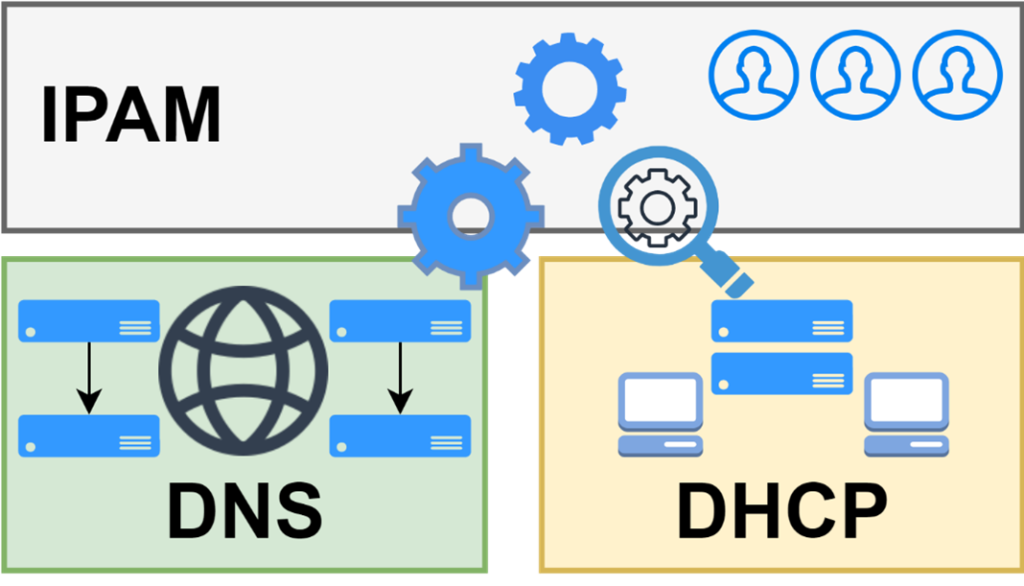What Is A DDI Solution And Why Do You Need One?

In simple terms, DNS, DHCP, and IPAM (IP Address Management) integration into a single service or solution is referred to as DDI. All communications across an IP-based network are made possible by the foundational network services known as DDI.
With DDI solutions, you can manage DNS and DHCP services centrally, as well as IPAM services.

We must comprehend each component of the triangle that makes up DDI in order to characterize it. In a nutshell, DHCP allocates IP addresses, IPAM controls IP resources, and DNS provides IP addresses. By combining these fundamental DNS, DHCP, and IP address services into a single platform solution, network management can be revolutionized.
The phrase “DDI” was first used by Gartner to refer to this business solution. (Unfortunately, Gartner has yet to provide a DDI Magic Quadrant for the world).
Domain Name System
The internet’s phone book is the Domain Name System (DNS). It converts readily recollected human-readable domain names, such as google.com, into IP addresses, like 142.250.77.110, which are the internet’s native languages.

As each networked device has a distinct IP address, DNS enables the communication between computers, servers, and other connected devices. Users are thus sent to the desired website as a result. The semantic layer of the internet makes it operate more efficiently compared to a system based solely on numeric addresses.
Dynamic Host Configuration Protocol
The common method for dynamically allocating IP addresses within a network is called Dynamic Host Configuration Protocol (DHCP). A DHCP server is often contacted by a device when it joins a network, such as a laptop or a smartphone, to obtain an IP address.
The server will then swiftly and automatically assign an IP address along with a few relevant characteristics. After accepting the assignment, the device can then communicate with both the internal network and the open internet.
IP Address Management
A technique for organising, monitoring, and maintaining IP address space on a network is called IP Address Management (IPAM). Imagine remembering every IP address on your company network if there are hundreds or thousands of connected devices. It quickly gets out of control.
However, IPAM software solutions can provide network administrators with a live inventory of both allocated and unassigned IP addresses, together with information about their subnets, statuses, hostnames, and associated hardware.
Core Benefits of DDI
There are dangers that come with managing DNS, DHCP, and IPAM independently. Network administrators, however, have visibility and control over their network from a single pane of glass with a centralized solution. This provides admins with:
- The ability to automate maintenance tasks
- Better visibility into potential conflicts when updating data for one service or another
- More context for auditing and reporting
- Enhanced efficiency
- Improved security, resiliency, and support
This solution’s integration simplifies the network team’s workload. Records are updated in real-time, so there is no lag between what is recorded and what is actually happening with IP addresses. Here are a few examples of what you can do effortlessly:
- Add, delete, and update host records. IP address assignments are updated automatically.
- Selectively deploy network devices.
- Add, delete, and update IP address records. DNS records can be added, deleted, or updated automatically.
- Add, delete, or update DHCP ranges with confidence that a static device isn’t already present in the range.
Zindagi Technologies has been helping people in upgrading their businesses by giving them services like Network Automation, Data Center Services, Managed Services, IT consulting, and many more. The proper business guidance and IT support are needed and with our help, you can take your business a step ahead. This will work only if you allow us to have a chat and we will make it easy for you. Drop us a message at +919773973971. You can also get in touch with us via email.
Author
Jagjeet Singh
Senior Consultant-Network Security
